INTERVIEW | On Feb 6, 2002, a Malaysian contingent left the remote port town of Ushuala, Argentina, on the Russian icebreaker ship Kapitan Dranitsyn. On board was none other than then premier Dr Mahathir Mohamad, a number of other ministers, and leading Malaysian scientists.
The science adviser to the prime minister at the time was Ahmad Zaharudin Idrus, an academic who believes that Malaysia has always had the right ingredients to succeed but has been held back by bureaucracy and corruption.
“Our boat was parked beside the iceberg. I remember Mahathir telling me that it’s very important for us to have national pride and continued development in the field of science,” Zaharudin (above) said in an interview with Malaysiakini earlier this month.
Recalling the historic trip to Antarctica, Zaharudin said it took about two weeks from the base in Argentina.
“We had to use a Russian icebreaker because you can’t use a normal ship. This ship was specially designed with a round bottom that glides over the ice, while the front is sharp and cuts through.
“I also remember that we screened a P Ramlee movie on board. Surely the first time a Malay-language movie was screened in Antarctica!” he shared.
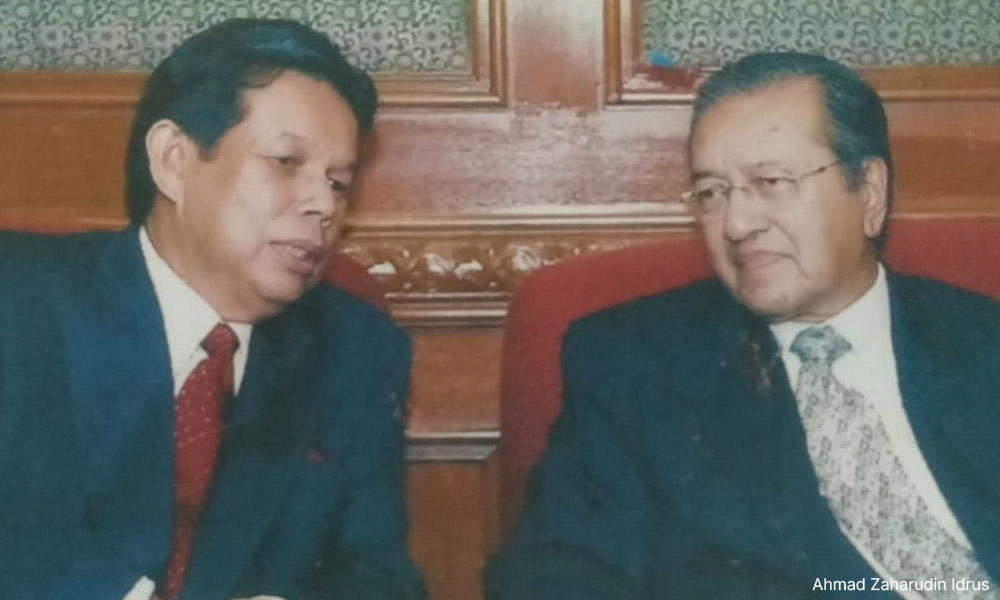
Aside from being a science adviser from 2001 to 2006, Zaharudin was also Akademi Sains Malaysia president at the time of the Antarctica trip and had recently finished a stint as vice-chancellor of Universiti Teknologi Malaysia from 1994 to 2001.
“It was an interesting time as we were having discussions over the implication of the Antarctica Treaty, which was originally signed by 12 countries to keep the region neutral. Malaysia had an interest in signing but no direct claim so we had to work with New Zealand and Australia.
“We were also contemplating the use of an Argentinian base on Antarctica but when we got there it was just a wooden shed. Not like the Scott Base which has many buildings.”
He also recalled a moment of danger when he was in a boat with then defence minister Najib Abdul Razak and his wife.
“There were seven to eight of us on a boat. There was Najib, Rosmah and scientists Salleh Mohd Nor and Siti Aisyah Alias, two bodyguards, and myself.
“Then the engine died and it took about 10 minutes to restart. The waves were high and we could have capsized, but didn't.
“Still, I thought the project was quite forward-looking and showed a commitment to the importance of science.”
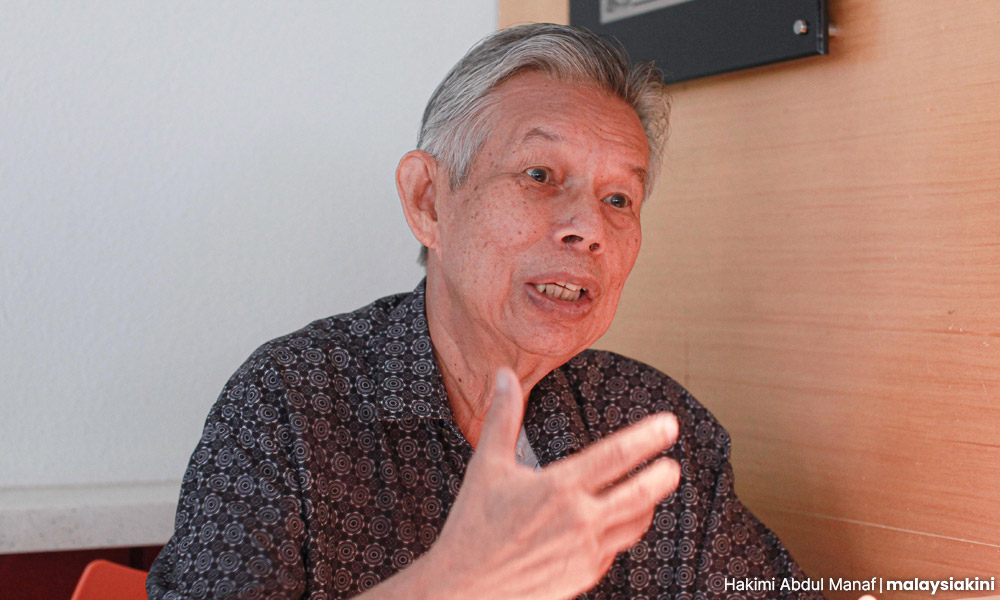
Looking back, Zaharudin said it was an exciting time to be at the forefront of scientific developments.
“Overall, it was quite a challenging time for me, as we never had a science policy. When you talk about science, politicians can be wary, thinking that we are anti-establishment.
“I engaged with Raja Tun Mohar Raja Badiozaman, who was the economic adviser at the time and we came up with the science report that led to the creation of the first national science policy.
“At that time, we focused on capacity-building because we did not have the infrastructure. We also worked towards the creation of the National Science Academy, which still stands at Jalan Merbok,” he added.
Another field of science that attained great importance during his tenure as science adviser was Malaysia’s angkasawan (astronaut) project, which culminated with the presence of Sheikh Muszaphar Shukor on the International Space Station aboard Soyuz TMA-11 in October 2007.
“I think there has been no vision on the importance of space travel and research since and during the Pakatan Harapan time, I think it was shelved as part of cost-cutting,” he said.
Revamp needed to reprioritise science
Zaharudin feels that while some scepticism and aspersions are cast on the quality of Malaysian scientists and students, there is nothing wrong with the talent pool.
“The problem is political leadership. We don’t have politicians with calibre and vision anymore. The worst of the worst in my period was better than the ones we have now. In those days, the politicians listened to us scientists and technical people. I was an adviser and we used to write their speeches. Nowadays, the leaders don’t think.
“The politicians don’t have the big picture. I wish we could do something but they don’t have a clue,” he lamented.
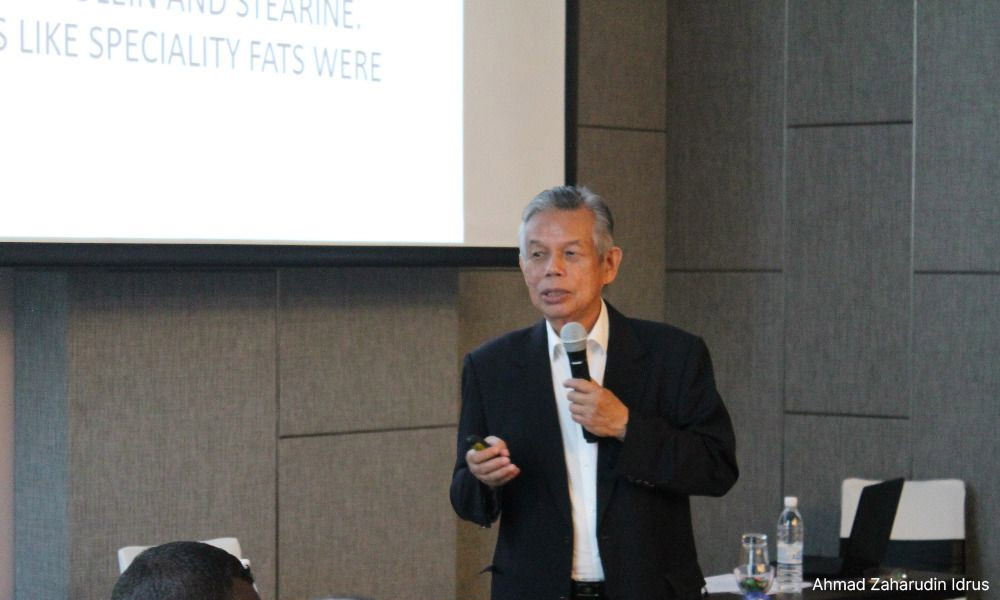
According to Zaharudin, one of the problems is that corruption has seeped into Malaysian bureaucracy at all levels.
“Just look at this littoral combat ship issue. The problem is that our politicians prefer to deal with foreign governments and companies so that the kickback system can take place without many questions.
“They are corrupt and are not thinking about the big vision for the country and people, but thinking for themselves, their self-interest.”
He said that Malaysia needs to fight to restructure its currency and also not only think about raw production but how to add value to its products.
“First, I will negotiate with Singapore and Brunei, and bring up our currency back on par. We still have the resources. We have so much more than them actually, but there’s too much leakage through corruption.
“We need the vision, for example, the minister of primary industries – they don’t think about production and how to market what we have. We have not been thinking about these kinds of things, and if you are not technically trained in certain disciplines, you can’t imagine the possibilities.
“We could be a maritime nation like Indonesia’s (president) Joko Widodo is advocating. The former Thai leader Thaksin (Shinawatra) wanted his country to be the kitchen of the world. Our leaders just want to be kampung (village) politicians and this is what you get,” Zaharudin said.
He added that Malaysia also needs to remove the racial element from both politics and science so that fair competition can spur the country to greater heights.
“I’m writing a book about what we need for economic transformation. What are the threats? A lack of funds, resources, technology, and economy of speed. It is because of corruption that we are so slow. Every good idea or research development has an elephantine pregnancy.
“When things could be done in three years elsewhere, you end up doing in 10 years in Malaysia. And you incur a lot of costs that way in terms of missed opportunities.”
An unexpected detour
Zaharudin was born in Lumut, Perak in 1944.
“I was born in a school during World War II, but when I was one year old we moved to Taiping. My father worked as a market inspector in Taiping Central Market. When I was a boy I went there, I looked like a Chinese, and everyone talked to me in Chinese.”
Zaharudin was an only child which was somewhat rare for the time.
“I was the only child, although I had a lot of cousins staying with the family. Still, I didn’t have to share things, nobody to fight with. When you grow up, all that matters. I think it shapes you differently, in good and bad ways. You can be more independent but also headstrong,” he mused.
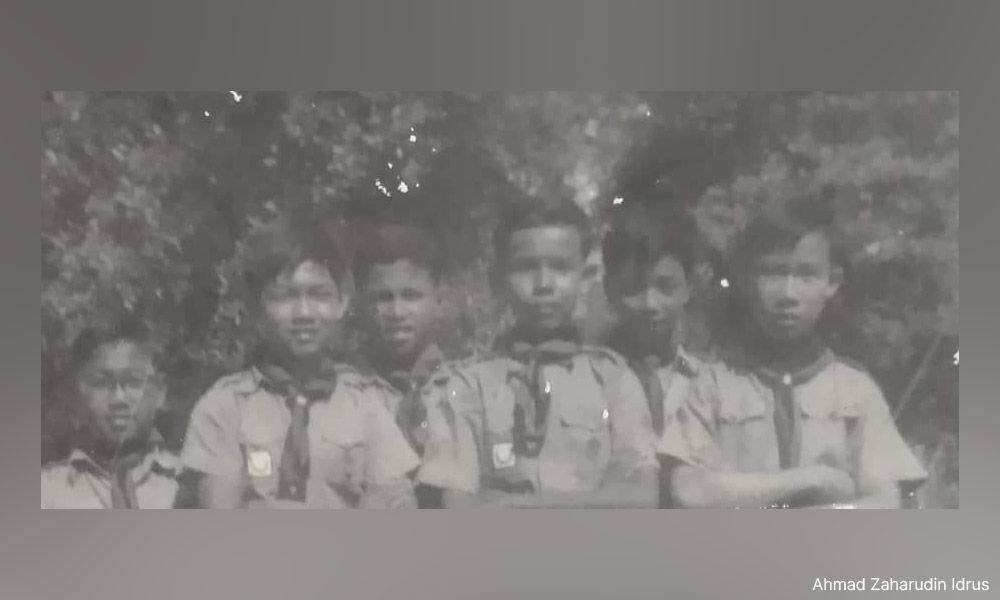
Zaharudin recalls the excitement of the Merdeka era.
“During the first election, somehow I was more attracted to the Socialist Front, which was the main opposition to Umno and the Alliance. The environment was very different from today. Unfortunately, today the tendency to cling on to your kind has grown.
“Even at Universiti Malaya (UM), my best friends were Chinese. In fact, there were not many Malays at either UM or Taiping. My best friend was the son of a dentist in town. I would go to their house and his mother would cook specifically for me.
“Another friend’s father sold cars and they owned a cinema. He would fetch me in his Jaguar and we would watch the movie in reserved seats.
“It struck me even at that age – are we Malays so poor? So that inspired me – I wanted to become rich when I grew up,” he recalled.
However, through a series of little twists of fate, Zaharudin found himself redirected towards a career in science.
“After Form 3, I got admitted to the Royal Military College (RMC). I think a good teacher also knows how to motivate and my science teacher, Mr Anthony, said to me ‘You are going to be a doctor’.
“So until Form 6 I wanted to become a doctor. My teacher was Captain Fairclough, who encouraged us to think. I was in the arts stream during that time actually, but I was struggling with English literature, I think Shakespeare was difficult for a young boy. So the director of studies moved me to the science class.
“I then got a Colombo Plan scholarship to study veterinary science in Edinburgh, but unfortunately in Form 6, I had German measles and sat for biology in a military hospital. I didn’t do well, couldn’t go on with Colombo, yet was able to get into UM,” he said.
“Coming from the regimentation of RMC, it was liberating and I was quite rebellious by nature. I didn’t like short hair. I became interested in student politics and activism as part of the Students Union. But if I had continued that trend I would have been a dropout, and eventually, I toned down and became better in my studies,” he added.
Zaharudin shared that he was not enthusiastic when it was suggested that he pursue agriculture.
“I strongly believe in industrialisation, and one of my lecturers, Sally Scullett, even loaned her car for me to go for an interview. She said, ‘Why don’t you do something for agriculture?’ and I replied ‘I don’t want to flog a lame horse’ because I felt that we needed to industrialise.”
Changes in mindset
Eventually, Zaharudin came around, graduating in Agricultural Science from the UM in 1969. He started work as a government agricultural officer and subsequently obtained both his Master’s and PhD degrees from the University of Aberdeen.
“I still felt that with agriculture the profit margin is small (15 percent) compared to industry (30-40 percent). At one stage our growth was tremendous and we should be pushing our own industries based on our research, no longer just assembling foreign technology parts. We have to think big.”
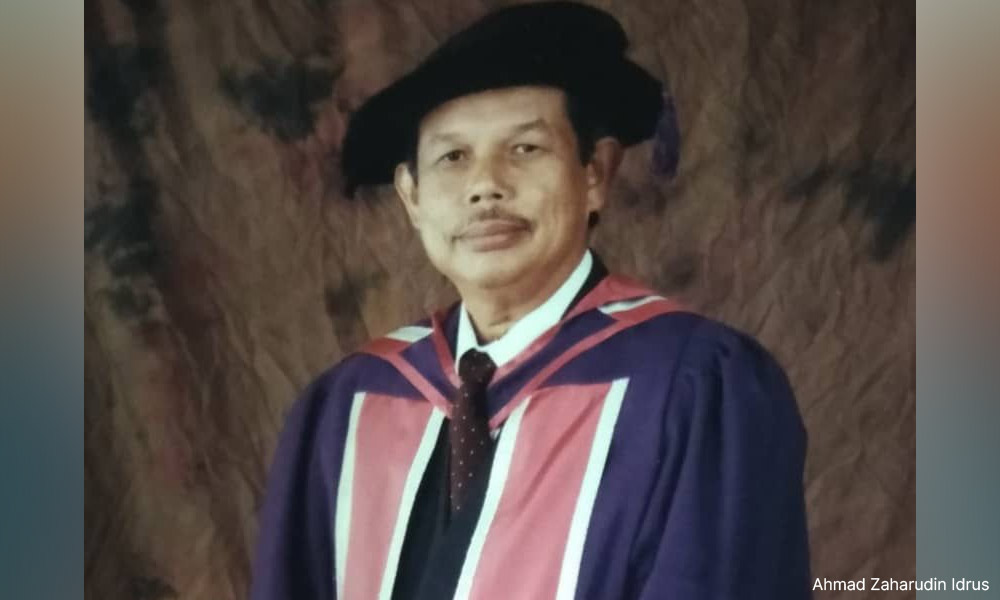
Zaharudin recalled how he got a shelling from his boss when he decided to introduce a corn project.
“I went down to a village in Kampung Gajah, Perak, and I encountered hostile villagers. I ended up promising them seeds for corn. And the thing is, we grew so much corn but didn’t know where to sell the products.
“That’s when I felt that while the government talked the rhetoric of self-sufficiency, it never planned out the logistics.”
By the late 1980s, he was involved in setting up the Petronas Petroleum Research Institute.
“Similarly when I served in Petronas I believed we can add greater value to our oil and gas by processing rather than selling crude oil. We discussed downstream processing.
“Later when Pak Lah (former premier Abdullah Ahmad Badawi) was pushing the same thing. I told him it’s better for us to import and then process. Like in Sudan, they have this gum Arabica but in Italy, they process and the multiplier effect is 10 times.
“We don’t become developed by just growing crops. For example, it’s better to let Thailand, Myanmar, and Vietnam produce rice, although maybe not for food security. Because in reality, labour costs and chemical costs make it impractical.”
Science in academia
Zaharudin recalled that when he was appointed vice-chancellor at Universiti Teknologi Malaysia (UTM), he went there with a mission to transform mindsets.
“I always argued that our graduates are world-class, but the main defect is the ability to communicate. We also do not have a correlation between jobs and opportunities.
“Unfortunately before me, UTM was too Malay-orientated to be world-class. I looked for partners such as Baron (Sushanta) Bhattarcharyya, who helped set up the business advanced tech centre.
“I visited the Cranfield School of Management and used the model to set up a good business school so that it would make the university graduates relevant to industry and society,” he added.
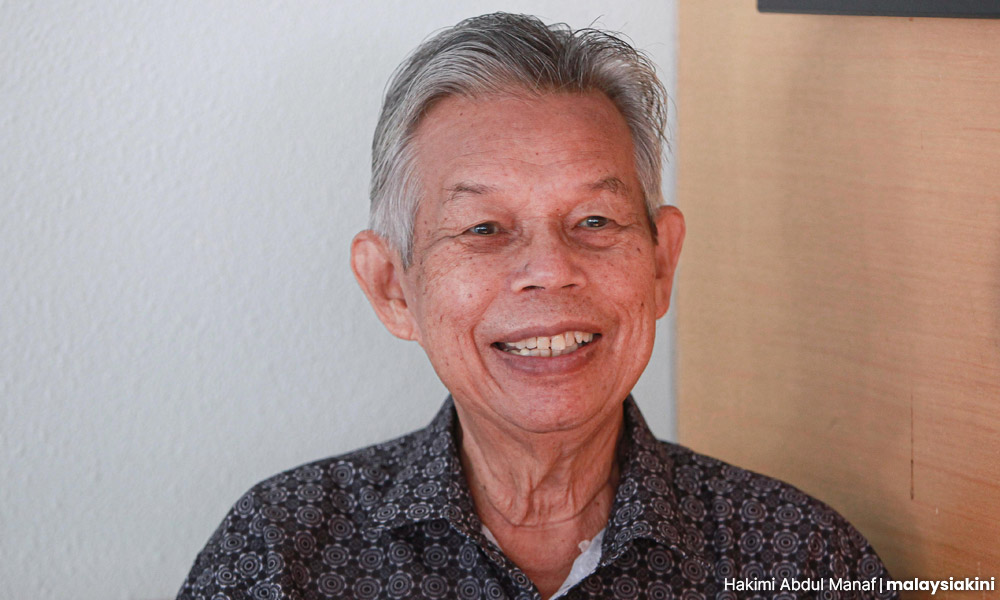
Ultimately, he said it was an unavoidable conclusion that Malaysia had fallen quite short of its potential as a science-based nation.
“We could double it. For example, when the oil palm boom came to Malaysia, I was involved in a project called Maju Ternak to develop the animal industry. They had very good people but I think the vision was not there and they were not pushed.
“There were all sorts of complaints about the environment and half-hearted efforts in cross-breeding. But we could have used technology to set up farms and become a dairy country.
“I used to be the chair of the National Energy committee in the 1980s. At that time, we were looking at non-renewable energy. I think that the energy situation has improved very much because of solar but still, it hasn’t had a mass impact,” he said.
Despite all the issues and shortcomings, Zaharudin is still hopeful for Malaysia to improve in the world of science.
“We have come quite a long way, and the interest in science has grown, but we could be better in so many fields. It’s still not too late, but we need to change our approach.” - Mkini




No comments:
Post a Comment
Note: Only a member of this blog may post a comment.